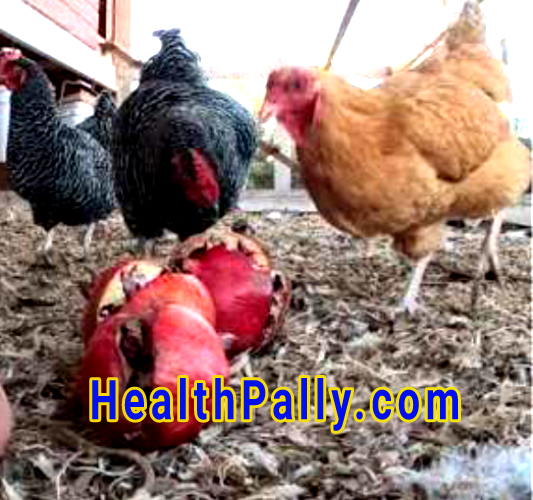Are you supposed to eat pomegranate seeds - Healthpally?
-
November 5, 2025 10:41 PM PST
All parts of the pomegranate fruit are edible for humans - the rind, the fleshy part, and the small white-to-tan crunchy bits inside the juicy red arils.
Pomegranate seeds are safe just like watermelon seeds, and they contain nutrients that help improve our health.
Should you swallow every bit of pomegranate seeds? Let's weigh the advantages and the disadvantages of eating the seeds.

Advantages of eating pomegranate seeds
Pomegranate seeds contain fibre, therefore, it's easy on your digestive system.
It also contains micronutrients, antioxidants, vitamins and minerals.
However, Akin Chaktty laments that pomegranate seeds contain insoluble fibre, which is not as beneficial as soluble fibre, especially for people who want to control sugar levels, cholesterol, and weight.
The red arils which house the seeds provide vitamin C, potassium, folate and other nutrients.
Studies have also shown that pomegranate seeds contain compounds such as punicic acid which offer anti-inflammatory effects.
Therefore, you can crunch the seeds, and enjoy the arils - it's tasty, and nutritious. Some people also fry it like watermelon seeds or eat it in different ways.
Disadvantages of eating pomegranate seeds
While the pomegranate seeds can be eaten, they hey can be a little hard to crunch for children or the elderly.
Some people don't just like the texture so they just spit it out
Some pomegranates have small arils while the seeds are big, making the texture and taste not so good.
According to Akin Chaktty at FarmPally, the cellulose, lignin, and others, though good but can contribute to constipation if you've digestive sensitivity or worsen it.
Eating a large chunk of pomegranate seeds, especially when you don't grind them properly can get stuck in your intestines or take time to be digested.
Again, if you have very low blood pressure, are on certain meds for blood pressure, blood thinners, or preparing for surgery, there can be interactions.
In rare cases, it could trigger an allergic reaction in some people, especially if you've not taken it before, and you've a food allergy.
If you eat pomegranate seeds that are not stored properly, it can lead to nausea, vomiting, diarrhoea, or abdominal pain.
Conclusion
You can eat pomegranate seeds safely, but if you want to, choose a ripe, healthy pomegranate fruit with minimal blemishes.
Ripe pomegranates often have seeds that are easier to crunch than the unripe ones.
Also, eat in moderation, especially for the first time. Also, you can feel full if you eat in excess, and you wouldn't want to have stomach discomfort, gas, and bloating.
If you have dental issues, or dental work, you're advised not to eat the seeds.
November 6, 2025 1:28 AM PSTIncome Tax Registration is the process of obtaining a National Tax Number (NTN) from the tax authority to legally report income, pay taxes, and file returns for DSA Finance.